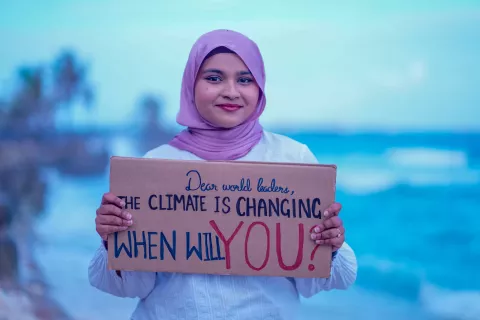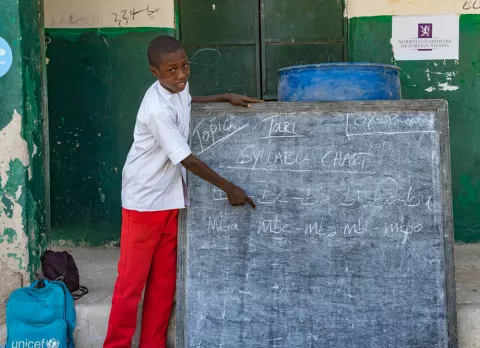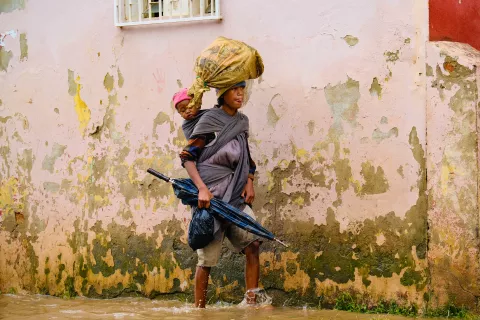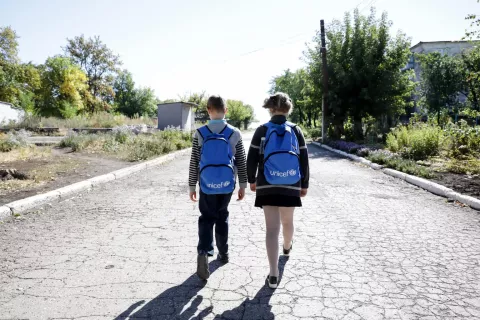When the COVID-19 pandemic hit Indonesia in 2020, the medically recommended and socially acceptable thing to do was to stay at home and flatten the curve of infection rates. But not everyone had that privilege.
Many of us had to continue working outside our homes to pay our bills and put food on the table. This was especially true for Indonesia’s working-class youth, who often worked multiple jobs to keep the privileged conveniently at home. Globally, 126 million young workers live in extreme or moderate poverty, and this condition will only get worse after COVID. For far too many young workers, particularly in Indonesia, COVID exposed them to the reality of economic inequality. Many working-class youth live pay check to pay check. Some of the jobless even marched on streets, demanding their right to work.
With the stress brought on by COVID, came many stressful challenges for young workers’ welfare and mental well-being in many countries, including my country Indonesia. Take my friend Erika, a 25-year-old doctor who cares for COVID patients in an overwhelming, yet unpaid, internship programme.
Erika works days and nights at multiple primary health care facilities. As an intern, Erika aids countless patients, providing medical check-ups, vaccinations, even transporting COVID patients to quarantine facilities. Erika is clearly overworked, but she is also asked to do her best on every shift – to give her best smile, best thoughts and best care.
What broke my heart was when Erika told me about the pressure she felt: “My stress and my anxiety level are increasing,” she told me. Erika also told me that generally in Indonesia, “We have a shortage of health care workers everywhere, yet we are not being paid enough.”
Erika’s story is only a tip of the iceberg.
Many young workers are deprived of their basic rights, such as decent wages, reasonable working hours, fair contracts and personal protective equipment. Without these rights, it is harder for young workers to maintain their mental well-being. Since too many are overworked and underpaid, mental well-being has become a luxury for many young people.
This should not be the new normal in the future. The new normal should be a place where workers’ rights are respected. The more workers’ basic rights are respected, the better the chances are for them to maintain their mental well-being. If young workers are underpaid and overworked, they will be too hungry and too tired to maintain their mental well-being. Under these conditions, we cannot ask them to work happily and provide the best for their workplace, their family, and themselves.
Instead of employers asking young workers to work harder and manage their own work-life balance, employers must treat their workers well and fulfil their basic rights.
Knowing these challenges, even before the pandemic, I have been engaged with many Indonesian young workers. With my youth-led non-profit Emancipate Indonesia, my team and I have gathered mutual aid for workers whose jobs are affected by COVID, and we have advocated for decent and inclusive work for all through webinars, research and campaigns.
The economic inequality around us has made it clear that basic rights and the mental well-being of young workers are two inseparable issues.
Before the pandemic, employers often saw basic rights and mental well-being of workers as separate issues. As stories like Erika’s surface, I am convinced that mental health webinars and ‘awareness’ alone are not enough to ensure the mental well-being of young workers. We need to make sure that their basic rights are fulfilled too.
When young workers’ basic rights are fulfilled, and they have access to social protections, only then can they maintain their mental well-being. Now as we understand that workers’ rights and mental well-being are intertwined, it is about time for world leaders to make decent work a new normal for all.
About the author:
Margianta Surahman Juhanda Dinata, or Gian, is an advocate for global health and social justice. In 2017, he founded Emancipate Indonesia, an anti-slavery non-profit promoting young workers' rights.
Republished from On My Mind: How adolescents experience and perceive mental health around the world – a companion report to the State of the World's Children 2021.





